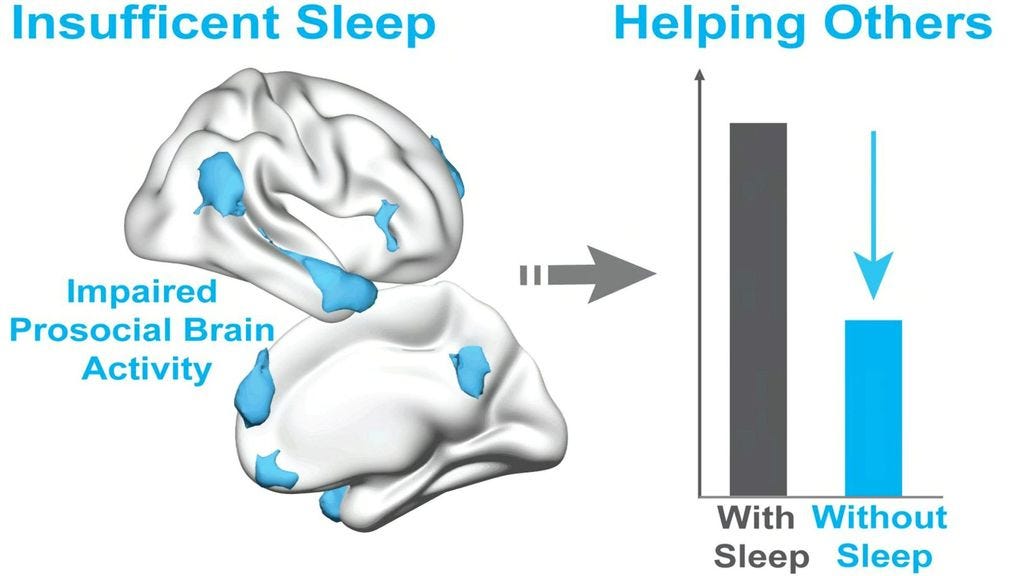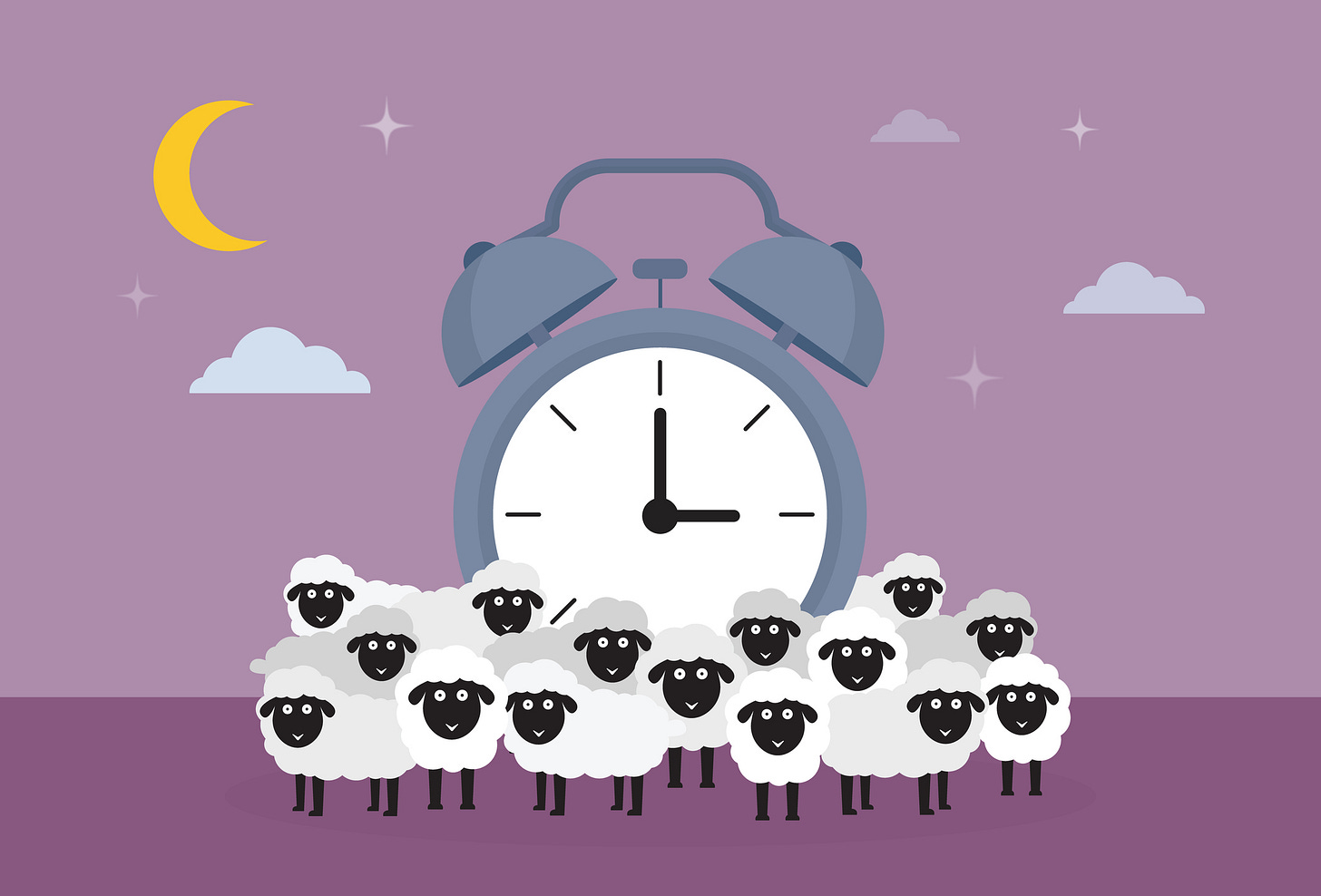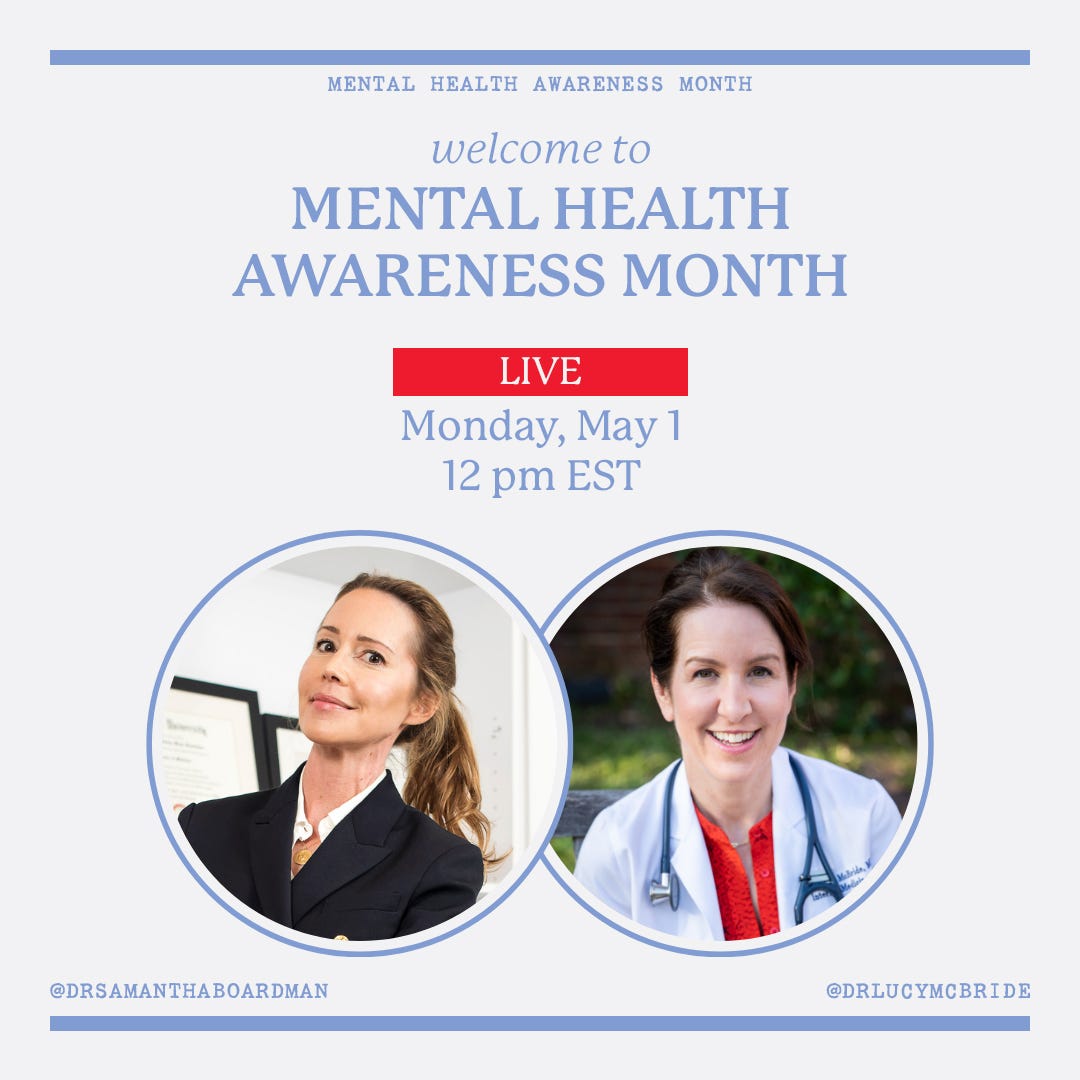The Secret to Waking up Alert and Refreshed
Sweet dreams are made of this.
“Until I’m 6 feet under
Baby I don’t need a bed
Gonna live while I’m alive
I’ll sleep when I’m dead.”
— Jon Bon Jovi
With all due respect to the venerable Jon Bon Jovi, this is a terrible idea. Countless studies have shown that if we want to live long and well, we also need to sleep long and well. The reality is that most of us are not getting enough sleep and are in denial about how exhausted we are. Just because we are able to get through the day does not mean we are well rested. In fact, people claiming to need the least sleep are the ones who nod off the fastest if given the chance, explained sleep expert Elizabeth Klerman in an interview with The Harvard Gazette. Her rule of thumb: If you fall asleep the minute your head hits the pillow, it’s a wake-up call you’re not getting enough sleep.
Even if we try to trick ourselves with caffeine into not feeling sleepy, lack of sleep still takes a toll on the brain and body. From cardiovascular disease to depression to obesity, sleep deficiency puts our health at risk. Study after study shows that getting good sleep can add years to our lives and more life to our years.
In addition to the overall health benefits of getting enough rest, here are some less obvious ways quality sleep impacts everyday life:
It will make you kinder and more willing to help others. Just look at what happens to our kindness quotient when we’re sleep deprived.

If exhaustion is your default setting, take heart.
Scientists at the University of California, Berkeley, have discovered that it is possible to wake up each morning without feeling sluggish by paying attention to three key factors:
Getting exercise the day before
Sleeping longer or later than you typically do
Eating a low sugar breakfast rich in complex carbohydrates, with a moderate amount of protein
The two week long study of 833 participants found that people felt more bright eyed and bushy tailed in the morning when they had done some physical activity the previous day, after sleeping longer than normal (ideally between 7 and 9 hours), and when they had eaten a breakfast high in carbohydrates and with limited sugar. Think nut butter on whole grain toast or banana oatmeal.
In addition to the three key behaviors mentioned above, here are some other data-driven ways to help you sleep better:
Lighten Up
Get 10 minutes of early morning sunlight. Going outside early in the day serves as a wake up signal, promotes focus, and prepares the body for sleep later that night by regulating the circadian clock, according to Dr. Andrew Huberman. Catch the sunset if you can or at least go outside for a few minutes in the afternoon as well. This also helps regulate the sleep/wake cycle.
Go Dark
The simple hack of wearing a sleep mask can boost how alert you feel the following day. Masks help sleepers spend more time in the deepest phase of sleep which is vital for processing new information and strengthening memory. The Sleep Code has a great selection.
If, like me, you have difficulty falling asleep or staying asleep consider this:
A typical recommendation for anyone having trouble sleeping is to get out of bed. The thinking is that trying to force oneself to fall asleep backfires and reinforces sleeplessness, both psychologically and physiologically. This advice has never sat well with me. Whenever I can’t sleep, the last thing I want to do is go to another room and play Sudoku.
I find the following unconventional methods to be tremendously helpful and they don’t require relocation. While I am a big believer in not sleeping with one’s phone nearby, I make an exception on sleepless nights so I can tune into these soothing modern lullabies. I think of them as Audible Ambien.
The BBC Shipping News Forecast
Listening to the weather reports for the seas around the British Isles is hypnotically soothing. The New York Times calls it “the secret for falling asleep so good it’s a national British treasure.” Even Dame Judi Dench is a fan. It’s wonderfully rhythmic and dull. It takes you to faraway places and describes weather patterns you can’t comprehend. That’s the point. Before you know it, you will be fast asleep.
This podcast is my cure for jet lag. I listen to the velvety-voiced Thomas Jones tell comforting bedtime stories to calm my unquiet mind. They are the equivalent of warm cookies and milk before bed. I queue up a few in a row but most of the time fall asleep within the first 15 minutes. Dreamy Views of Florence is one of my favorites.
One more thing to try…
Whatever you do, don’t fall asleep. If worrying about not sleeping is what keeps you up at night, try paradoxical intention. Paradoxical intention reduces performance anxiety about falling asleep by instructing patients to do the opposite — get into bed and stay awake. When we engage in our most feared behavior (i.e. staying awake), excessive stress about nodding off diminishes.
Sweet Dreams.
It’s almost Mental Health Awareness Month!
Join fellow Substack writer
and me on May 1 for an Instagram Live to kick off Mental Health Awareness Month.We’ll dive in on why there is no health without mental health, share ways to brighten your day (and hopefully someone else’s, too), and answer your questions about mental health and wellbeing.
🗓️: Monday, May 1
⏰: 12:00 pm EST




amazing!, loving this article as a student you trend to get a bad sleeping cicle, I’ve been trying sleeping with background noise/sounds like brown or white noise, are big phone stoppers; it increases relaxation and falling in a good asleep , it has work so good for me, but Samantha you are a life saver!
This is great! Thank you! I hadn't heard of the BBC report - Just listened to a few minutes and I was dozing off ;) The getting back to sleep and stopping the busy mind. Also, this will be nice if my husband is snoring and can tune him out. ;)